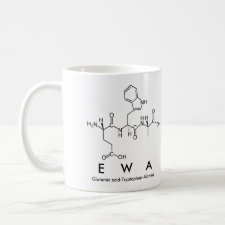
Authors: Mistry J, Guerreiro A, Moczko E, Piletska E, Karim K, Piletsky SA
Article Title: Analysis of cooperative interactions in molecularly imprinted polymer nanoparticles.
Publication date: 2015
Journal: Molecular Imprinting
Volume: 3
Issue: (1)
Page numbers: 55-64.
DOI: 10.1515/molim-2015-0003
Alternative URL: http://www.degruyter.com/view/j/molim.2015.3.issue-1/molim-2015-0003/molim-2015-0003.xml?format=INT
Abstract: Cooperative binding is commonly observed in biological receptor systems. This study investigates whether it is possible to prepare nano-sized molecularly imprinted polymers (nanoMIPs) that show cooperative binding. NanoMIPs which exhibit cooperative binding would have increased affinity for immobilised template molecules making them useful for advanced applications in diagnostics and sensors. The use of a template derivatised solid support provides a facile route to prepare nanoMIPs with surface imprints, and the method is ideally suited to study this topic. Although not observed during the course of this study, positive interbinding site cooperativity was hypothesised by way of an increase in the number of binding sites imprinted on the nanoMIPs, by increasing template density on the solid support surface. After synthesis, the affinity of nanoMIPs was analysed using surface plasmon resonance (SPR) technique. Under the conditions investigated, a ten fold increase in binding affinity was measured as template density was increased. SPR results could be explained by an increase in cooperative binding; however calculations showed that the increase in affinity was not significant enough to prove cooperative binding interactions. The main conclusion obtained was that MIP nanoparticles contain only one "high-affinity" binding site that interacts with immobilised template in an SPR assay.
Template and target information: paracetamol, acetaminophen
Author keywords: solid-phase synthesis, template density, paracetamol, surface plasmon resonance



Join the Society for Molecular Imprinting

New items RSS feed
Sign-up for e-mail updates:
Choose between receiving an occasional newsletter or more frequent e-mail alerts.
Click here to go to the sign-up page.
Is your name elemental or peptidic? Enter your name and find out by clicking either of the buttons below!
Other products you may like:
 MIPdatabase
MIPdatabase









